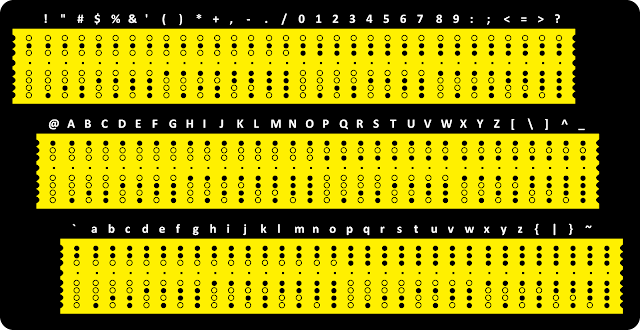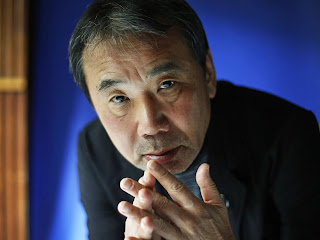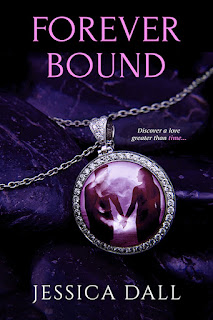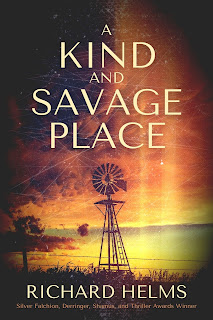We have all run across people who ask us the damnedest questions, sometimes so stupid they beggar belief:
"How do I write a bestseller?" Look, if I knew, I'd be doing a tour of morning news shows.
"Do you have Stephen King's address and phone number?" No, and I doubt if he has mine, either.
"Could I make more money writing spy thrillers or horror stories?" Flip a coin, flip a coin.
"I have a great idea - do you know a good agent?" No. The only people who get to pitch ideas are Stephen King, J. K. Rowling, James Patterson, et al, and all they have to do is whisper, and the contract shows up.
"I have a great idea - you could write it, and we'd split the profits 50/50." Better yet, you write it and I won't read it.
Sigh…
But sometimes someone writes the most brilliant response to all these questions. Back in 1951 or thereabouts, the editor of "Circus" asked Dylan Thomas "to describe the steps which help to establish a popular poet in England today. It was an opportunity for irony which he has not wasted."
Enjoy.
How to Be a Poet or the Ascent of Parnassus Made Easy
by Dylan Thomas
Let me, at once, make it clear that I am not considering, in these supposedly informative jotrhythmic, Poetry as an Art or a Craft, as the rhythmic verbal expression of a spiritual necessity or urge, but solely as the means to a social end; that end being the achievement of a status in society solid enough to warrant the poet discarding and expunging those affectations, so essential in the early stages, of speech, dress, and behavior; an income large enough to satisfy his physical demands, unless he has already fallen victim to the Poet’s Evil, or Great Wen; and a permanent security from the fear of having to write any more. I do not intend to ask, let alone to answer, the question, “Is Poetry a Good Thing?” but only, “Can Poetry Be Made Good Business?"
I shall, to begin with, introduce to you a few of the main types of poets who have made the social and financial grade.
First, though not in order of importance, is the poet who has emerged docketed “lyrical,” from the Civil Service. He can be divided, so far as his physical appearance goes, into two types.
He is either thin, not to say of a shagged-out appearance, with lips as fulsome, sensual, and inviting as a hen’s ovipositor, bald from all too maculate birth, his eyes made small and reddened by reading books in French, a language he cannot understand, in an attic in the provinces while young and repellent, his voice like the noise of a mouse’s nail on tinfoil, his nostrils transparent, his breath gray; or else he is jowlcd and bushy, with curved pipe and his nose full of dottle, the look of all Sussex in his stingo’d eyes, his burry tweeds smelling of the dogs he loathes, with a voice like a literate Airedale’s that has learned its vowels by correspondence course, and an intimate friend of Chesterton’s, whom he never met.
Let us see in what manner our man has arrived at his present and enviable position as the Poet who has made Poetry Pay:
Dropped into the Civil Service at an age when many of our young poets now are running away to Broadcasting House, today’s equivalent of the Sea, he is at first lost to sight in the mountains of red tape which, in future years, he is so mordantly, though with a wry and puckered smile, to dismiss in a paragraph in his “Around and About My Shelves.” After a few years, he begins to peer out from the forms and files in which he leads his ordered, nibbling life, and picks up a cheese crumb here, a dropping there, in his ink-stained thumbs. His ears are uncannily sensitive: he can hear an opening being opened a block of offices away.
And soon he learns that a poem in a Civil Service magazine is, if not a step up the ladder, at least a lick in the right direction. And he writes a poem. It is, of course, about Nature; it confesses a wish to escape from humdrum routine and embrace the unsophisticated life of the farm laborer; he desires, though without scandal, to wake up with the birds; he expresses the opinion that a plowshare, not a pen, best fits his little strength; a decorous pantheist, he is one with the rill, the rhyming mill, the rosy-bottomed milkmaid, the russet-cheeked rat-catcher, swains, swine, pipits, pippins. You can smell the country in his poems, the fields, the flowers, the armpits of Triptolemus, the barns, the byres, the hay, and, most of all, the corn. The poem is published. A single lyrical extract from the beginning must suffice: —
The roaring street is hushed!
Hushed, do I say?
The wing of a bird has brushed
Time’s cobwebs away.
Still, still as death, the air
Over the gray stones!
And over the gray thoroughfare
I hear — sweet tones! —
A blackbird open its bill,
— A blackbird, aye! —
And sing its liquid fill
From the London sky.
A little time after the publication of the poem, he is nodded to in the corridor by Hotchkiss of Inland Revenue... Hotchkiss, lunching with Sowerby of Customs, himself a literary figure of importance with a weekly column in Will o’ Lincoln’s Weekly and his name on the editorial list of the Masterpiece of the Fortnight Club (volumes at reduced rates to all writers, and a complete set of the works of Mary Webb quarter-price at Christmas), says casually, “You’ve rather a promising fellow in your department, Sowerby. Young Cribbe. I’ve been reading a little thing of his, ‘I desire the Curlew.’” And Cribbe’s name goes the small fetid rounds.
He is next asked to contribute a group of poems to Hotchkiss’s anthology, “New Pipes,” which Sowerby praises — “a rare gift for the haunting phrase” — in Will o’ Lincoln’s. Cribbe sends copies of the anthology, each laboriously signed, “To the greatest living English poet, in homage,” to twenty of the dullest poets still on their hind legs. Some of his inscribed gifts are acknowledged. Sir Tom Knight spares a few generous, though bemused, moments to scribble a message on a sheet of crested writing paper removed, during a never-to-be-repeated week-end visit, from a shortsighted but not all that shortsighted peer. “Dear Mr. Crabbe,” Sir Tom writes, '’I appreciate your little tribute. Your poem, ‘Nocturne with Lilies,’ is worthy of Shanks. Go on. Go on. There is room on the mount.” The fact that Cribbe’s poem is not “Nocturne with Lilies” at all, but “On Hearing Delius by a Lych-Gate,” does not perturb Cribbe, who carefully files the letter, after blowing away the dandruff, and soon is in the throes of collecting his poems to make a book, “Linnet and Spindle,” dedicated “To Clem Sowerby, that green-fingered gardener in the Gardens of the Hesperides.”
The book appears. Some favorable notice is taken, particularly in Middlesex. And Sowerby, too modest to review it himself after such a gratifying dedication, reviews it under a different name. “This young poet,” he writes, “is not, thanks be it, too ‘modernistic’ to pay reverence to the shining source of his inspiration. Cribbe will go far.”
And Cribbe goes to his publishers. A contract is drawn up, Messrs. Stitch and Time undertaking to publish his next book of verse on condition that they have the first option on his next nine novels. He contrives also to be engaged as a casual reader of manuscripts to Messrs. Stitch and Time, and returns home clutching a parcel which contains a book on the Development of the Oxford Movement in Finland by a Cotswold Major, three blank-verse tragedies about Mary Queen of Scots, and a novel entitled “Tomorrow, Jennifer.”
Now Cribbe, until his contract, has never thought of writing a novel. But, undaunted by the fact that he cannot tell one person from another—people, to him, are all one dull, gray mass, except celebrities and departmental superiors — that he has no interest whatsoever in anything they do or say, except in so far as it concerns his career, and that his inventive resources are as limited as those of a chipmunk on a treadmill, he sits down in his shirt sleeves, loosens his collar, thumbs in the shag, and begins to study in earnest how best, with no qualifications, to make a success of commercial fiction.
He soon comes to the conclusion that only quick sales and ephemeral reputations are made by tough novels with such titles as “I’ve Got It Coming” or “Ten Cents a Dice,” by proletarian novels about the conversion to dialectical materialism of Palais-de wide boys, entitled, maybe, “ Red Rain on You, A If,” by novels called, maybe, “Melody in Clover,” about dark men with slight limps. And he soon sees that only the smallest sales, and notices only in the loftiest monthlies of the most limited circulation, will ever result from his writing such a novel as “The Inner Zodiac,” by G. H. Q. Bidet, a ruthless analysis of the ideological conflicts arising from the relationship between Philip Armour, an international impotent physicist, Tristram Wolf, a bisexual sculptor in teak, and Philip’s virginal but dynamic Creole wife, Titania, a lecturer in Balkan Economics, and how these highly sensitized characters react a profound synthesis while working together, for the sake of One-ness, in a Unesco Clinic.
No fool, Cribbe realizes, even in the early stages of his exploration, with theodolite and respirator through darkest Foyle, that the novel to write is that which commands a steady, unsensational, provincial and suburban sale and concerns, for choice, the birth, education, financial ups-and-downs, marriages, separations, and deaths of five generations of a family of Lancashire cotton brokers. This novel, he grasps at once, should be in the form of a trilogy, and each volume should bear some such solid, uneventful title as “The Warp,” “The Woof,” and “The Way.” And he sets to work.
From the reviews of Cribbe’s first novel, one may select: “Here is sound craftsmanship allied to sterling characterization.” “English as Manchester rain.” “Mr. Cribbe is a bull-terrier.” “A story in the Phyllis Bottome class.” On the success of the novel, Cribbe joins the N.I.B. Club, delivers a paper on the Early Brett Young Country, and becomes a regular reviewer, praising every other novel he receives— (“The prose shimmers”) and inviting every third novelist to dine at the Servile Club, to which he has recently been elected.
When the whole of the trilogy has appeared, Cribbe rises, like scum, to the N.I.B. committee, attends all the memorial services for men of letters who are really dead for the first time in fifty years, tears up his old contract and signs another, brings out a new novel, which becomes a Book Society choice, is offered, by Messrs. Stitch and Time, a position in an “advisory capacity,” which he accepts, leaves the Civil Service, buys a cottage in Bucks (“You wouldn’t think it was only thirty miles from London, would you. Look, old man, see that crested grebe.” A starling flies by), a new desk and a secretary whom he later marries for her touch-typing. Poetry? Perhaps a sonnet in the Sunday Times every now and then: a little collection of verse once in a while (“ My first love, you know”). But it doesn’t really bother him any more, though it got him where he is. He has made the grade!
But let us look, very quickly, at some other methods of making poetry a going concern.
The Provincial Rush, or the Up-Rimbaud-and-At-Em approach. This is not wholeheartedly to be recommended as certain qualifications are essential. Before you swoop and burst upon the center of literary activity — which means, when you are very young, the right pubs, and, later, the right flats, and, later still, the right clubs — you must have behind you a body (it need have no head) of ferocious and un-understandable verse. (It is not, as I said before, my function to describe how these gauche and verbose ecstasies are achieved. Hart Crane found that, while listening, drunk, to Sibelius, he could turn out the stuff like billyho. A friend of mine, who has been suffering from a violent headache since he was eight, finds it so easy to write anyway he has to tie knots in his unpleasant handkerchief to remind him to stop. There are many methods, and always, when there’s a will and slight delirium, there’s a way.) Again, this poet, must possess a thirst and constitution like that of a salt-eating pony, a hippo’s hide, boundless energy, prodigious conceit, no scruples, and — most important of all, this can never be overestimated — a home to go hack to in the provinces whenever he breaks down.
Of the poet who merely writes because he wants to write, who does not deeply mind if he is published or not, and who can put up with poverty and total lack of recognition in his lifetime, nothing of any pertinent value can be said. He is no businessman. Posterity Does Not Pay.
Also, and highly unrecommended, are the following: —
The writing of limericks. Vast market, little or no pay.
Poems in crackers. Too seasonal.
Poems for children. This will kill you, and the children.
Obituaries in verse. Only established favorites used. Poetry as a method of blackmail (by boring). Dangerous. The one you blackmail might retaliate by reading you aloud his unfinished tragedy about St. Bernard: “The Flask.”
And lastly: Poems on lavatory walls. The reward is purely psychological."
 |
Dylan Thomas' writing shed.
photo by Richard Knight |
To read the whole article, go HERE.


























